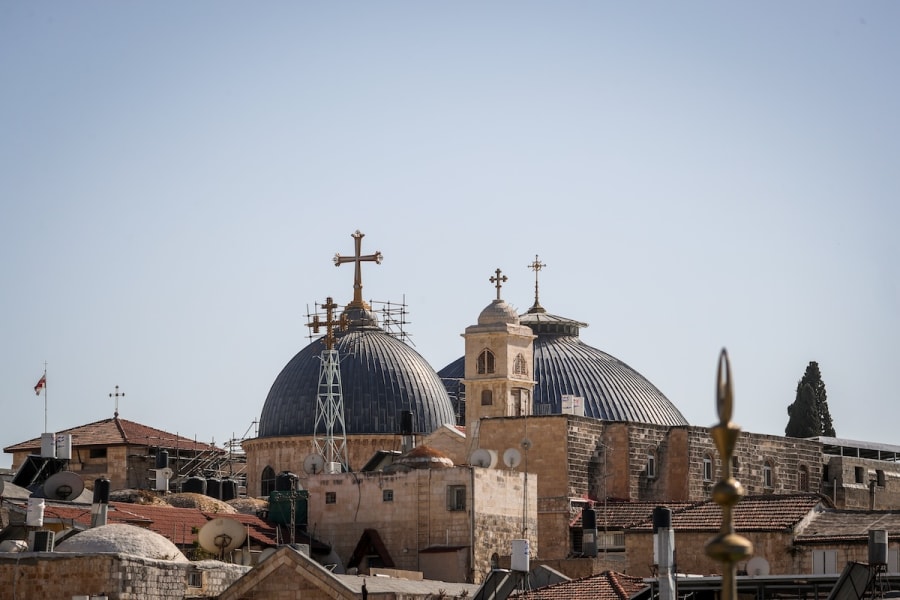Churches in Israel protest property tax demand, calling it a 'coordinated attack on Christian presence’
Leaders say recent moves upend centuries of previous agreements

Leaders of Catholic and Orthodox churches in Israel have accused Israeli authorities of a “coordinated attack” on the Christian presence in Israel due to the decision by several municipalities to tax church properties.
Israeli officials insist the issue is a matter of regular financial concern, and point out that they are requesting taxes on commercial properties owned by the churches, not religious properties.
The church leaders claim the move is a disruption of the long-standing status quo of not taxing church properties and say it indicates an increasing intolerance of the Christian minority in Israel.
The heads of the Catholic, Greek Orthodox, and Armenian Orthodox denominations sent a letter to Prime Minister Benjamin Netanyahu advising him that four different municipalities in Israel had recently sent warning letters to the churches threatening legal action over failure to pay taxes.
“We believe these efforts represent a coordinated attack on the Christian presence in the Holy Land,” the church leaders wrote. “In this time, when the whole world, and the Christian world in particular, are constantly following the events in Israel, we find ourselves, once again, dealing with an attempt by authorities to drive the Christian presence out of the Holy Land.”
The church leaders say there is a longstanding tradition of not taxing their properties, including commercial properties, because funds from those properties are used in ways that provide a benefit to the state, funding schools, hospitals, and homes for the elderly and disabled.
Over the past year, municipalities like Tel Aviv, Ramla, Nazareth, and Jerusalem began sending warnings threatening legal action.
While several of those municipalities did not provide any comment to the Associated Press, which reported on the story, the city of Jerusalem said that local churches had failed to file the necessary paperwork for tax exemptions for several years. The municipality also stated it has been in ongoing dialogues with various churches over the disputed taxes.
On Sunday, the leaders issued a joint statement expressing their concerns over the Jerusalem Municipality’s decision to pursue legal action.
"We declare that such a measure both undermines the sacred character of Jerusalem and jeopardizes the Church’s ability to conduct its ministry in this land on behalf of its communities and the worldwide church,” the statement said.
The disagreement is not a new development. In 2018, after the Jerusalem Municipality announced plans to collect 650 million shekels ($174.5 million) in property taxes from church properties not used for worship, there was a strong response from the churches.
The leaders of the three denominations that share the Holy Sepulchre Church decided to close the church during a peak period of tourism and Christian pilgrim traffic to highlight the economic impact of the city’s actions.
Following that decision, Netanyahu intervened, halting the efforts to collect property taxes, and formed a commission to resolve the problem, thus preventing harm to Israel’s relations with the international Christian community.
Local Christians represent a very small portion of Israeli society, making up about 2% of the population. Many of these Christians are Arabs from Catholic or Greek Orthodox churches, or Armenian Orthodox Christians who fled during the Armenian Genocide in the Ottoman Empire.

The All Israel News Staff is a team of journalists in Israel.
You might also like to read this:















